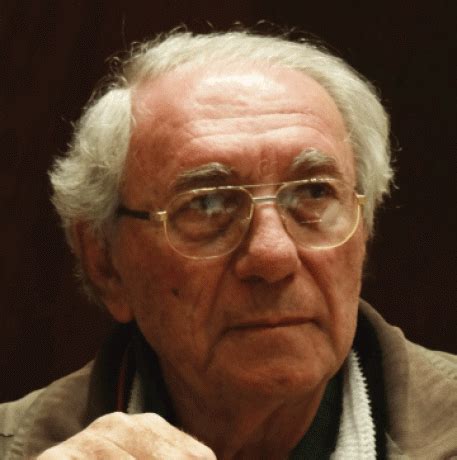
I was struck by a comment made by the late Dr. Sadiq Jalal Al-Azm, a secular Syrian thinker, a Professor Emeritus at Damascus University in Modern European Philosophy and visiting professor at the Department of Near Eastern Studies at Princeton University until 2007: “The modern world has been made without the participation of the Arabs or even their being consulted, and they have been inserted into the fabric of the modern world by force, by being dragged into it and by annexation. This fact is a source of the enormous psychological complex that Arab thought suffers from regarding the problem of progress.”
BY YUSUF YUSUF
I WILL LIST some of the things that cast some light on the above statement, and bring in some other topics, because I see that this is one of the factors that has led to the Arabs not ‘belonging’ to today’s world. I hope not to venture to pass a judgement on the correctness of these opinions until fully reading the research:
1 . I believe that the Western world has been able to liberate itself from many restrictions, for example, the control of the clergy and the imposition of many church practices that have nothing to do with the Christian faith, including the ‘indulgences’. The objection or protest presented by Martin Luther (1483-1546) subsequently spawned a reformist religious revolution, and I see that this revolution shattered the myths held by society, and later unleashed the mental creativity that the church had hitherto shackled with iron chains.
I note that Luther’s protest was an intellectual call in that Pope Leo X wished to complete St. Peter’s Basilica and had sent the monk into Germany to distribute ‘indulgences’ with the intention of collecting funds, and this enraged Luther who argued that “this behaviour is inconsistent with the principles of the Christian religion” and he therefore took advantage of the occasion when people met, as usual, in Wittenberg Church in November, and nailed to the door of the church a long protest text containing 95 articles attacking the indulgences and declaring to the church flock that the Bible was the only source of authority.
Between these two religious calls for reform there is a wide gap in thought, content and approach
This protest later led western thought towards broad arenas of liberation, leading to a huge explosion of energy in the fields of science and technology. Liberation stands at the beginning of every civilization, and no civilization can be built upon the enslavement of thought. I am not saying here that Luther’s protest was the main engine of the modern renaissance, but it pointed towards revolutions in other fields.
2 . Another factor is the emergence of the Wahhabi doctrine and its impact on the collective thought and mindset of Muslims. If we put aside the time difference between the founder of Wahhabism, Muhammad ibn ‘Abd al-Wahhab (1703-1791) and Martin Luther (1483-1546) a period of more than two and a quarter centuries – then the Sunni, Hanbali religious scholar Muhammad ibn ‘Abd al-Wahhab similarly fashioned alongside Islam a parallel religion: Wahhabism. This is a Salafist call, a return, in short, to Islam as it was revealed to the Messenger, and according to its understanding in terms of a creed, a religious law and behaviour, by the Companions and Followers and those who in turn followed them[1] from those earlier centuries deemed superior. Wahhabism held all other sects of Islam to be Disbelief, and called first for the repentance of their adherents and then for their killing if they did not repent. A Shia website[2] observes in this context that:
Generally speaking, the Wahhabis, following Ibn Taymiyya, have a special interpretation of tawhid and shirk,[3] and they therefore believe that Muslims became polytheists after the first centuries of Islam, in the sense that the visiting of the graves of the prophets and the righteous saints became prevalent among them, and they introduced heretical innovations and exaggerations into their religion. For which reason they held that these must first repent and then be killed if they do not.
Between the two religious calls for reform mentioned above, there is a wide gap in thought, content and approach. While Luther liberated thought from ecclesiastical restrictions and the control of the clergy, and while his call was one of the factors that subsequently unleashed the society’s mental activity and creativity – we see, on the contrary, that Wahhabi doctrine destroyed the modern civilizational values in its calling for takfir and for killing, and left the mentality of the Muslim individual hostage to the mindset and approach of the Muhammadan call launched 14 centuries ago. Wahhabism was a call to return to the past, a call to build up ramparts blocking off the mind from actual reality, and at the same time from civilised culture. One cannot construct a future upon the ideas of the past.
3 . In the same regard, and in a timeline somewhat comparable with the preaching of Muhammad ibn ‘Abd al-Wahhab, we see in Europe the emergence of the industrial revolution (1760-1840) – a term denoting the sudden changes in means of production in the cotton and mining industries, and in the innovation of machinery. It began in England in the middle of the eighteenth century, and as a result mechanisation replaced by manual labour, there was a transition to working in factories and large machine-powered workplaces. The machine thus heralded the beginning of the industrial revolution and caused it to take the place of human handiwork.
Arab Muslims are far from builders of civilization. This is because they were not there at its inception, and nor did they contribute to its development
This matter deserves attention. While the Wahhabi preaching called for the takfir and slaying of those who opposed it, and called for an antiquarian turn to the time of Muhammad ibn Abdullah, we note that the industrial revolution shook its hands of the past and its technological anti-modern backwardness in industry and artistic and intellectual productivity. It called for the mechanization of industry, the abandonment of the manual approach to the means and tools of production, and to opening up projects for factories and workplaces.
4 . Other factors also left the Muslim Arabs lagging behind the train of civilization: their rejection and takfir of the ‘other’, in particular the concepts of ‘the people of the dhimma’.[4] This is an Islamic jurisprudential term that refers to Christians, Jews – ‘People of the Book’ – and adherents to other religions living under Islamic rule or in countries with a Muslim majority. Another factor is the command to ‘pay the Jizya’:[5]
Fight against such of those who have been given the Scripture as believe not in Allah nor the Last Day, and forbid not that which Allah hath forbidden by His messenger, and follow not the Religion of Truth, until they pay the tribute readily, being brought low.[6]
These two concepts contributed to the stratification of society, between Muslims and dhimmis, and this humiliation and degradation of the status and citizenship of others most certainly contributed to the isolation of Muslims from the rest of the world, and led to others, including Jews and Christians, withdrawing from the Arab arena. Note that even the era of the so-called Islamic civilisation, that civilisation was neither Arab nor Islamic. In this regards the Turkish writer and researcher Ahmed T. Kuru, Professor of Political Science at the University of San Diego said in an interview published on Al Jazeera Net:
The Islamic civilization in its Golden Age was not an Arab or Persian civilization; it was a civilization that was able to include many ethnic and religious communities, and the Golden Age of Islamic civilization was distinguished by the participation in common of Sunni and Shi‘a Muslims …This era also witnessed contributions from Christians, Jews and other non-Muslims, and was, in addition, open to Greek, Sassanian, Egyptian, Indian and Chinese sciences and technologies.

Suggested Reading
Intellectual self-isolation and the prospects of constructing a culture
In addition to all of the above, the Muslim Arabs were preoccupied with conquests and the occupation of other lands right from the time of the Messenger of Islam and on and beyond with the ‘Rightly Guided’ caliphs, and the Umayyad and Abbasid caliphs. It took no serious interest in the basic currents that form the kernel of a nation’s civilization. They also preoccupied themselves with doctrinal and doctrinal issues that only served to divide the Nation and, most importantly, with a thirst for rule and power. The evidence for this is that coups, revolutions and plots dominated the scene continuously right up to the modern era, as we can see happening now in Iraq, Syria, Egypt and Sudan.
Arab Muslims are far from builders of civilization. This is because they were not there at its inception, and nor did they contribute to its development. They are importers of it, not participants in its construction, given that many religious shaykhs want to go back to the time of Muhammad and the Companions. This was highlighted by the terrorist movements – al-Qaeda and ISIS and Al-Nusra – that call for a return to the era of the Caliphate. That is why they consider Western civilization to be something alien to the religious mentality of Muslims. And Muslim Arabs, who are schizophrenic, now abandon their countries in order to live comfortably in civilized countries, yet when they settle in western lands, they go on to form Islamic entities in order to Islamize the countries they now inhabit!
“It is not easy to grasp the horizons of the Arab mind, because it is a confused mind; it lives in one state, its heart is in another state, while its intentions are directed towards another state altogether!”
[1] The author here cites the definition in Sayd al-Fawa’id. For the terms ‘Companions’ and ‘Followers’ see Glossary: Sahāba and Tābi‘ī.
[2] The author is citing https://ar.wikishia.net/view/الوهابية
[3] See Glossary under Tawhīd and Shirk.
[4] For details on this see Glossary.
[5] See Glossary.
[6] Qur’an IX (al-Tawba), 29.
Main image: Martin Luther posting his 95 Theses to the door of the church in Wittenberg in 1517. Oil painting by Ferdinand Pauwels, c. 1872.


